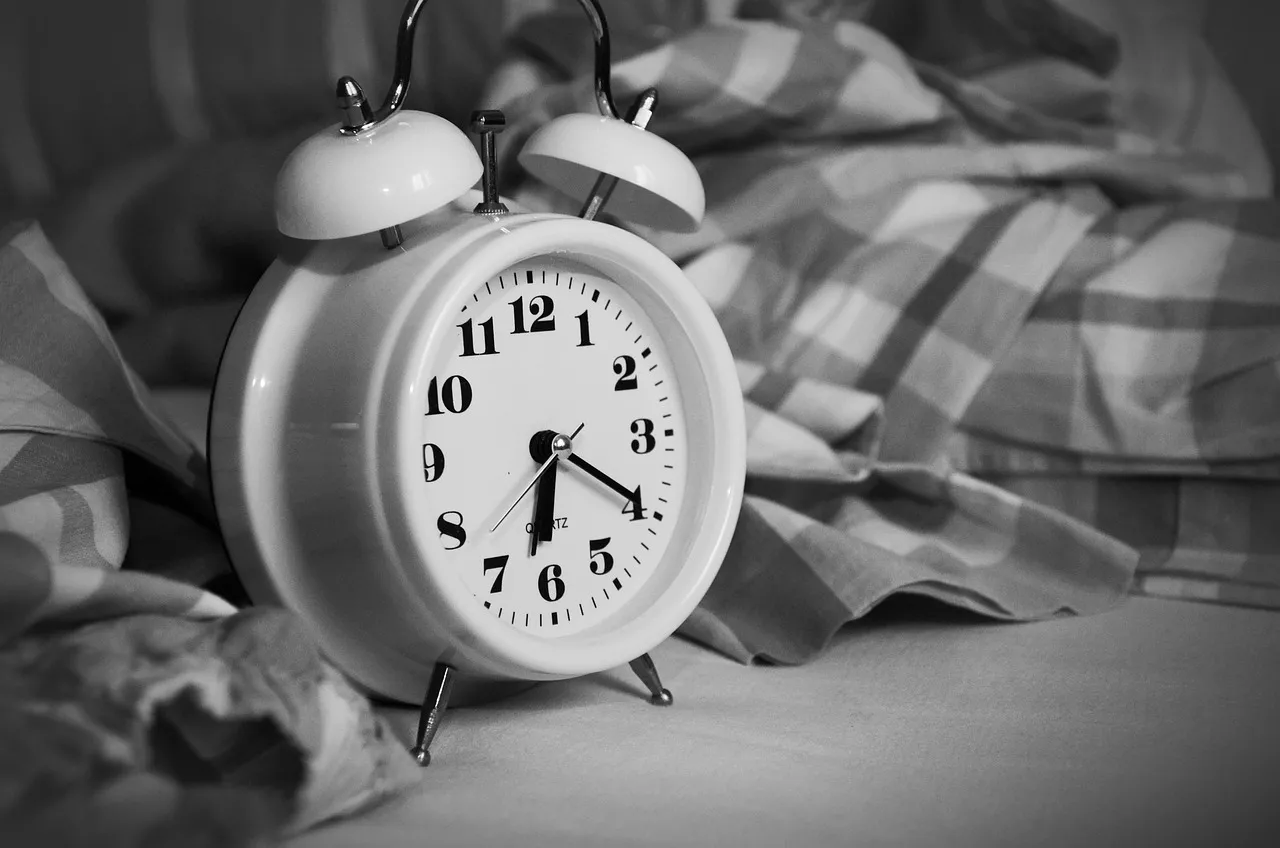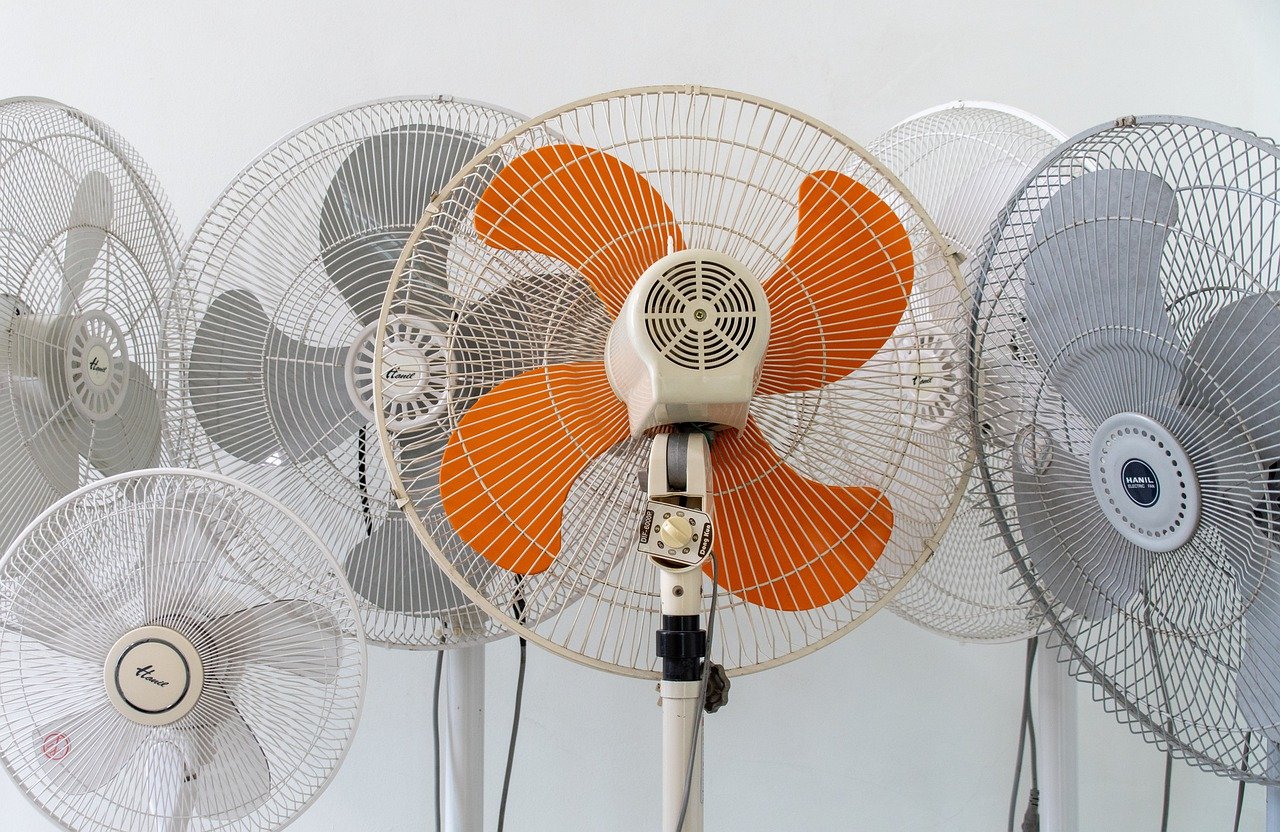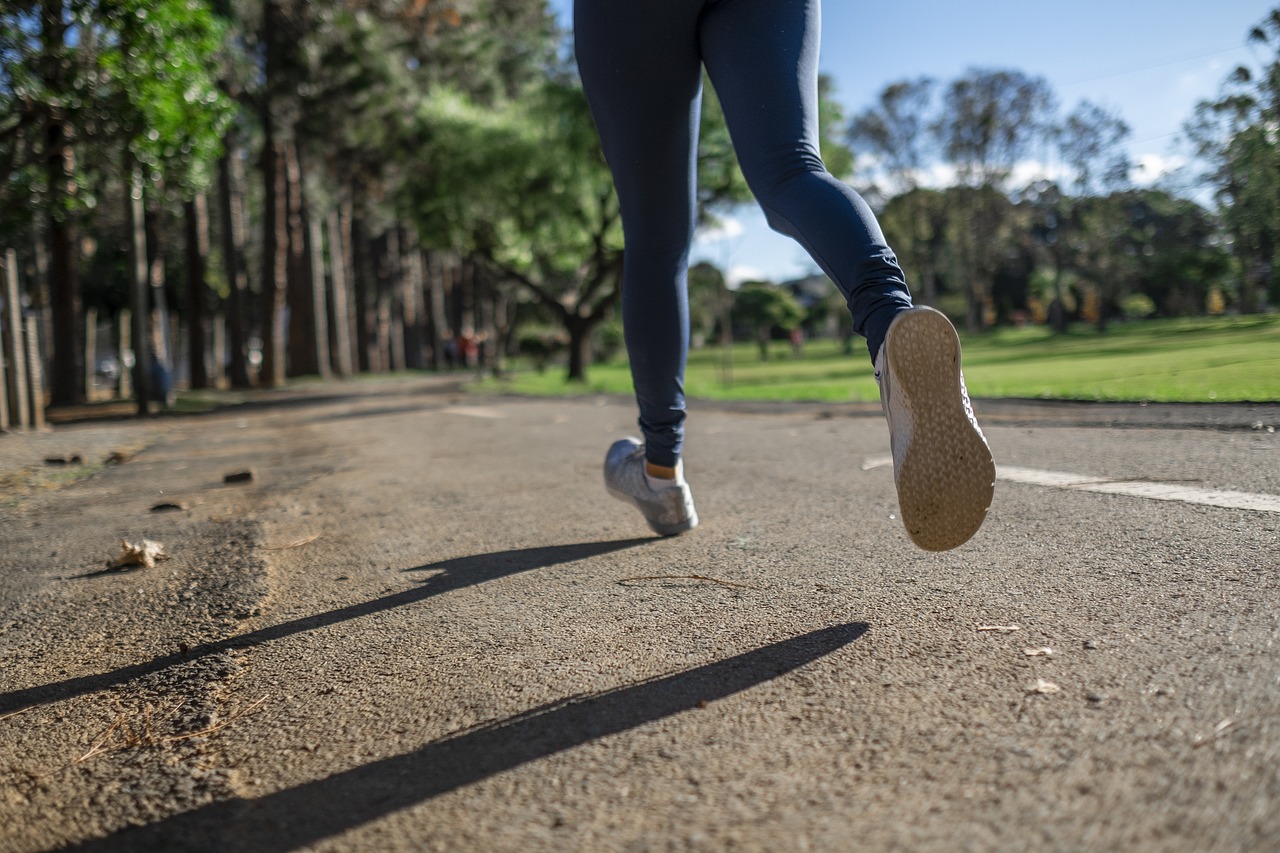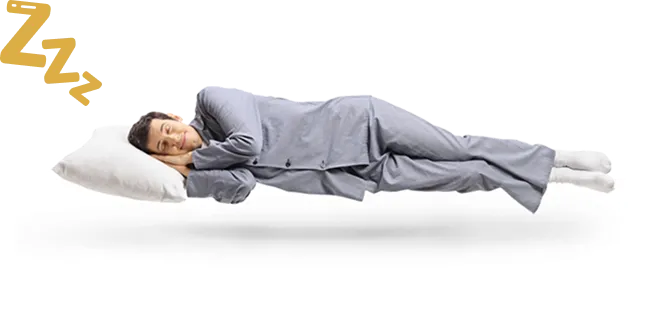Sleep & Well Being, Mattress Science
November 2024Why You’re More Tired in Autumn—and sleep solutions
As the crisp autumn air sets in and daylight hours grow shorter, it’s easy to embrace cosy sweaters, warm drinks, and the festive feel of the season. But while autumn is beautiful, it can also bring an unexpected wave of tiredness. Many people report feeling more sluggish and less energized, struggling to get out of bed or maintain their usual energy levels. So, what’s really going on here?

According to sleep experts, the key to autumn tiredness is the body’s response to seasonal changes, particularly in its melatonin and Vitamin D production. Let’s delve deeper.
What Exactly Is Melatonin (and Why Does It Matter in Autumn)?
Melatonin is a hormone that controls your sleep-wake cycle. The pineal gland in your brain produces it and plays a vital role in letting your body know when it’s time to wind down. As daylight hours decrease in autumn, the body starts producing melatonin earlier in the evening and keeps producing it later into the morning. This shift is what leads to earlier feelings of sleepiness in the evening and grogginess in the morning.
A lack of sunlight also impacts Vitamin D levels, critical for regulating melatonin. Reduced Vitamin D can disrupt the body’s natural rhythms, contributing to that familiar autumn lethargy. Research has shown that melatonin production increases by up to two hours in response to shorter days and less light exposure, making it challenging to maintain our regular energy levels (Harvard Medical School).

Why You’re More Tired in Autumn
Autumn often brings a sense of increased tiredness, largely due to changes in daylight and cooler temperatures that impact our body’s internal rhythms. As days get shorter, our exposure to natural light decreases, which prompts the brain to produce more melatonin—a hormone that regulates sleep. This can lead to feeling sleepier earlier in the evening and more sluggish in the morning. Additionally, less sunlight means lower Vitamin D levels linked to mood and energy. These shifts, combined with the natural urge to “slow down” as temperatures drop, contribute to feeling more tired in autumn than in summer.
5 Expert-Recommended Tips for Sleeping Better During Autumn
Despite the seasonal shift, you don’t have to resign to a season of feeling drained. Ryan Kerr, sleep expert at mattress retailer John Ryan By Design, offers these five tips to help you keep your sleep on track:
1. Gradually Adjust Your Sleep Schedule
Adjusting your sleep schedule gradually can make a big difference. Shifting your bedtime and wake-up time by 10–15 minutes every few days helps your body adapt more smoothly to earlier sunsets. This strategy allows you to maintain a consistent sleep routine without feeling jetlagged in your own home. Research from the American Academy of Sleep Medicine suggests that consistent sleep schedules support better sleep quality and help counter the impacts of seasonal changes.

2. Get Outside for Natural Light Exposure
While daylight hours are shorter, exposure to natural light—especially in the morning—helps regulate your internal clock. Morning sunlight triggers a decrease in melatonin, letting your body know it’s time to wake up. Aim for at least 15 minutes of morning light exposure to reduce grogginess and boost energy levels throughout the day. Even on cloudy days, outdoor light exposure is significantly brighter than indoor lighting and can help reset your circadian rhythm (National Sleep Foundation).

3. Consider a Vitamin D Supplement
Autumn and winter’s lower sunlight exposure often result in lower Vitamin D levels, which has been linked to fatigue and can interfere with melatonin regulation. A Vitamin D supplement can help you maintain better energy levels and improve your sleep quality. Experts recommend a daily Vitamin D intake during the colder months, as it can also benefit immunity and mental health. A study by the Cleveland Clinic supports that Vitamin D supplementation can improve daytime energy and help prevent seasonal tiredness.
4. Keep Your Bedroom Cool
While the cooler temperatures outside may make you want to turn up the heat indoors, keeping your bedroom on the cooler side—around 18.5°C (65°F)—supports deeper sleep. Research shows that your body’s core temperature naturally drops during sleep, and a cooler room environment can facilitate this process, making it easier to fall asleep and stay asleep. Instead of overheating your space, layer up with breathable, soft bedding like cotton flannel sheets or an extra blanket to stay warm without disrupting your sleep cycle.

5. Stay Active, Even in Cooler Weather
Autumn might make you want to cosy up and relax, but regular exercise is crucial for maintaining good sleep quality. Physical activity helps regulate your circadian rhythm and can improve mood and reduce stress, making it easier to fall asleep at night. If it’s too dark or cold for outdoor activities, consider home workouts or joining a gym for indoor exercise. Studies show that even moderate daily movement, like a brisk walk, can help combat seasonal fatigue (Sleep Foundation).

Adjusting to Seasonal Changes Smoothly
Ryan Kerr, our resident sleep expert, explains, “As autumn sets in, the shorter days and cooler nights can really affect how we sleep, often leaving us feeling out of sync. But by understanding how these seasonal changes impact our body’s natural rhythms, we can adjust more smoothly and still get the restful sleep we need. Autumn is all about slowing down and getting cosy, and your sleep should be no different.”
Incorporating these small adjustments can help you embrace the autumn season while feeling well-rested and energized. By being mindful of how seasonal changes affect your body, you can enjoy a balanced, cosy autumn and head into winter feeling your best.
Check your Mattress isn’t the problem this Autumn
When choosing the right handmade mattress, ensuring it suits your specific needs and preferences is essential. If your current mattress is over seven years old, it may be losing its support and comfort, making it harder for you to get a good night’s sleep. Many people find that an uncomfortable or unsupportive mattress leads to frequent wake-ups or difficulty falling asleep, so investing in the right mattress is crucial.
Start by selecting a mattress with a spring tension that’s appropriate for your body weight. For example, people with lighter body weights generally find softer tensions more comfortable, while those with higher body weights may need firmer spring support to avoid sinking in too deeply. Spring tension is a foundational factor in how comfortable you’ll feel, so ask your retailer for guidance on selecting the best tension for you.
Next, focus on the comfort layers, which directly affect how the mattress feels on the surface. For optimal comfort and breathability, look for mattresses with natural fiber comfort layers, such as wool, cotton, or cashmere. These materials provide excellent temperature regulation, helping to keep you cool in summer and warm in winter. Your sleeping position is also key here: side sleepers tend to need softer comfort layers to cushion pressure points like shoulders and hips, whereas back and stomach sleepers often feel more supported with firmer comfort layers that keep the spine aligned.
Consider choosing a turnable mattress, which can be used on both sides. This design helps distribute wear evenly, minimizing sagging and prolonging the lifespan of the mattress. Regularly flipping a turnable mattress every few months can also help maintain its shape and support, giving you a fresher and more comfortable sleeping surface for years to come.
If you need further help in shortlisting suitable new mattresses, give our small expert team a call for free advice on 0161 437 4419.
Get A Great Night Sleep With John Ryan By Design
It’s not just dealing with the autumn weather changes that can help bring a fabulous night’s sleep; having a comfortable and supportive mattress is another key to enjoying a great night’s sleep. At John Ryan, we stock all manner of high-quality mattresses. So, if you think your mattress could contribute to your poor sleep quality (even if it’s only in part), then why don’t you browse our excellent range and see if you can find something that suits you better? And if you have any questions about our products, please don’t hesitate to contact us. Our friendly team of experts will be more than happy to listen to your requirements and help you to choose the mattress that will work best for you.

Dreaming of the perfect nights sleep?

Ask us a question
There are over 6000 questions and answers submitted by you on all questions about mattresses and bed problems. Enter a keyword such as Vi Spring, John Lewis beds, bad back or Memory Foam and see if your question has already been answered.
If you can’t find an answer in knowledge hub, ask a new question. We aim to respond to all questions within one working day.
Newsletter
Enter your email to join our newsletter. We’ll send you occasional news and mattress expertise.

